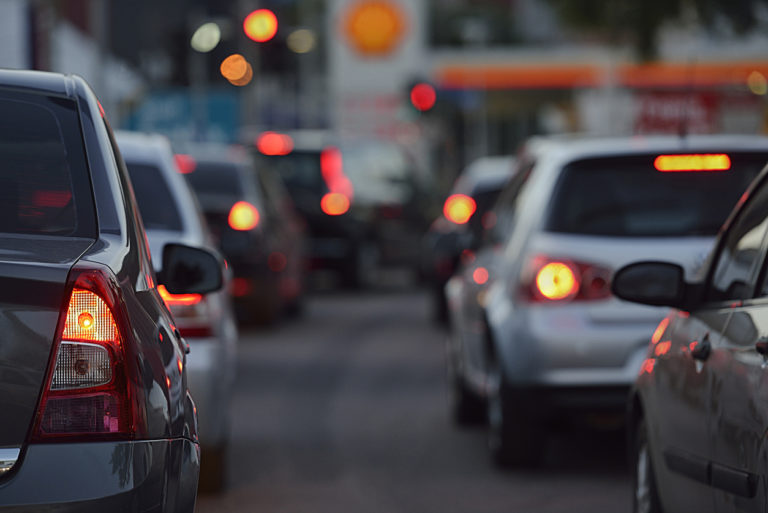What Does Yielding the Right Of Way Mean?
Bill Allen | July 14, 2021 | Car Accidents

Yielding the right of way means allowing other drivers to proceed in front of your vehicle. For example, stopping at a yield sign before merging into another lane is yielding the right of way.
Failing to yield the right of way is a traffic offense in Florida. You could be fined and receive points against your driver’s license.
Common traffic offenses related to failing to yield the right of way include, but are not limited to:
- Failure to yield the right of way to a pedestrian
- Failing to yield the right of way when entering a roadway from a driveway, parking lot, or side road
- Failure to yield right of way at an intersection
- Failing to yield the right of way to emergency vehicles
- Failure to yield right of way to oncoming traffic when turning left (without a green arrow)
- Failing to yield the right of way to vehicles in a lane when merging into traffic
- Failure to obey traffic signals
- Failing to yield the right of way when entering a roundabout
The above list is just a few examples. The Florida Driver’s Handbook and the Florida Uniform Traffic Control Laws explain when a driver must yield the right of way.
All Florida drivers are expected to know the traffic laws related to yielding the right of way.
What Happens if I Fail to Yield the Right of Way in Florida?
If a police officer does not catch you and you do not cause a car accident, you might get away with breaking a traffic law. However, if a police officer witnesses your traffic offense, you may be cited for a traffic offense. As stated above, you could be required to pay a fine and accumulate points against your driver’s license.
When a failure to yield the right of way results in a traffic accident, you might be charged with a traffic offense. You may also be financially liable for damages caused by the automobile accident.
What Happens if Someone Caused My Wreck By Failing to Yield the Right of Way?
Florida’s no-fault insurance laws apply to failure to yield the right of way accidents. You must file a claim for medical expenses and lost wages against your PIP insurance coverage. However, if you sustain serious injuries, you might be able to sue the at-fault driver for damages.
Damages that you might recover if you sustain a severe injury include:
- Cost of medical treatment and personal care
- Physical pain and discomfort
- Lost wages and benefits
- Emotional and mental pain and suffering
- Permanent impairments and disabilities
- Decrease in future earning potential
- Loss of enjoyment of life and decrease in quality of life
Prompt medical attention and documentation of damages are essential steps in protecting your right to fair compensation for a car accident claim.
How Often Do Right of Way Accidents Happen?
Failing to yield the right of way was the third most common factor in fatal crashes during 2019. This violation resulted in 3,728 fatal car crashes in 2019. Only speeding and intoxicated driving resulted in more traffic deaths.
According to FLHSMV, failure to yield the right of way resulted in 158,688 traffic accidents in Florida. That figure includes 428 fatal crashes and 3,518 incapacitating crashes.
What Should You Do if You Are Involved in a Right of Way Accident?
If possible, take pictures of the accident scene and make a video of the crash site with your cell phone. Note the names and contact information for any eyewitnesses.
Do not discuss the crash with anyone at the accident scene except for police officers. Never admit fault or say that you are unsure whether your actions contributed to the cause of the accident.
Determining who had the right of way is crucial for proving fault for the cause of the accident. Both drivers may claim to have had the right of way.
Videos of the collision from traffic cameras or nearby surveillance cameras can solve the mystery of who had the right of way. Eyewitness testimony can also help determine which driver had the right of way.
If you do not have a video of the crash or an eyewitness, proving fault could be more difficult. A personal injury lawyer may be able to help. An attorney can retain expert witnesses to assist with the case.
Accident reconstructionists, engineers, and other professionals may be able to use evidence from the crash scene to reconstruct the collision. Damage to the vehicles may also help determine how the crash occurred.
With expert testimony, you might be able to convince a jury that you had the right of way, and you are entitled to compensation for your damages from the other driver.
Contact Our Car Accident Law Firm in North Central Florida
If you need legal assistance, contact the Gainesville car accident lawyers at Allen Law Firm at your nearest location to schedule a free consultation today.
We have two convenient locations in North Central Florida:
Allen Law Firm, P.A. – Gainesville office
2550 SW 76th St #150
Gainesville, FL 32608
(877) 255-3652
Allen Law Firm, P.A. – Ocala Office
112 S Pine Ave
Ocala, FL 34471
(352) 351-3258
